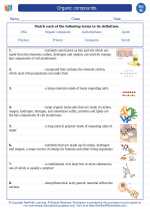Organ Systems
The human body is composed of several organ systems, each with specific functions and roles. These systems work together to maintain the body's overall health and well-being. Understanding the organ systems is crucial to comprehending how the body functions and how it responds to different stimuli.
Study Guide
- Integumentary System: This system comprises the skin, hair, and nails. It serves as a protective barrier against external elements and helps regulate body temperature.
- Skeletal System: The skeletal system is made up of bones and provides support, protection, and movement for the body. It also plays a role in mineral storage and blood cell production.
- Muscular System: Comprised of muscles, tendons, and ligaments, the muscular system enables movement and supports posture. It also facilitates organ function and blood flow.
- Nervous System: The nervous system includes the brain, spinal cord, and nerves. It controls and coordinates body activities, processes sensory information, and enables cognitive functions.
- Endocrine System: This system consists of glands that produce hormones, such as the pituitary gland, thyroid gland, and adrenal glands. Hormones regulate various bodily functions, including metabolism, growth, and reproduction.
- Circulatory System: Comprising the heart, blood vessels, and blood, the circulatory system transports oxygen, nutrients, and hormones to cells and removes waste products from the body.
- Respiratory System: The respiratory system includes the lungs and airways, facilitating the exchange of oxygen and carbon dioxide between the body and the environment.
- Digestive System: This system is responsible for breaking down food, absorbing nutrients, and eliminating waste. It includes organs such as the stomach, intestines, liver, and pancreas.
- Excretory System: Comprised of the kidneys, bladder, and urinary tract, the excretory system removes waste products from the body and regulates water and electrolyte balance.
- Immune System: The immune system defends the body against pathogens and foreign substances. It consists of white blood cells, lymphoid organs, and antibodies.
- Reproductive System: Responsible for reproduction, this system includes the reproductive organs and associated structures, such as the ovaries, testes, and uterus.
Understanding the interplay between these organ systems is essential for comprehending human biology and physiology. Each system plays a unique role in maintaining homeostasis and overall health.
Studying the organ systems involves learning about their structures, functions, interactions, and common disorders or diseases that may affect them. It also requires understanding how lifestyle choices, such as diet, exercise, and stress management, impact the function of these systems.
By grasping the intricacies of the organ systems, students can develop a comprehensive understanding of the human body and its remarkable complexity.
[Organ Systems] Related Worksheets and Study Guides:
.◂Science Worksheets and Study Guides Eighth Grade. Organic compounds

 Worksheet/Answer key
Worksheet/Answer key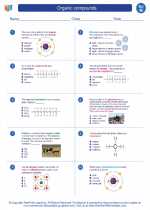
 Worksheet/Answer key
Worksheet/Answer key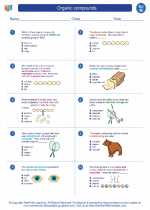
 Worksheet/Answer key
Worksheet/Answer key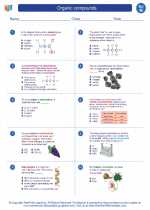
 Vocabulary/Answer key
Vocabulary/Answer key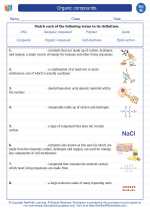
 Vocabulary/Answer key
Vocabulary/Answer key